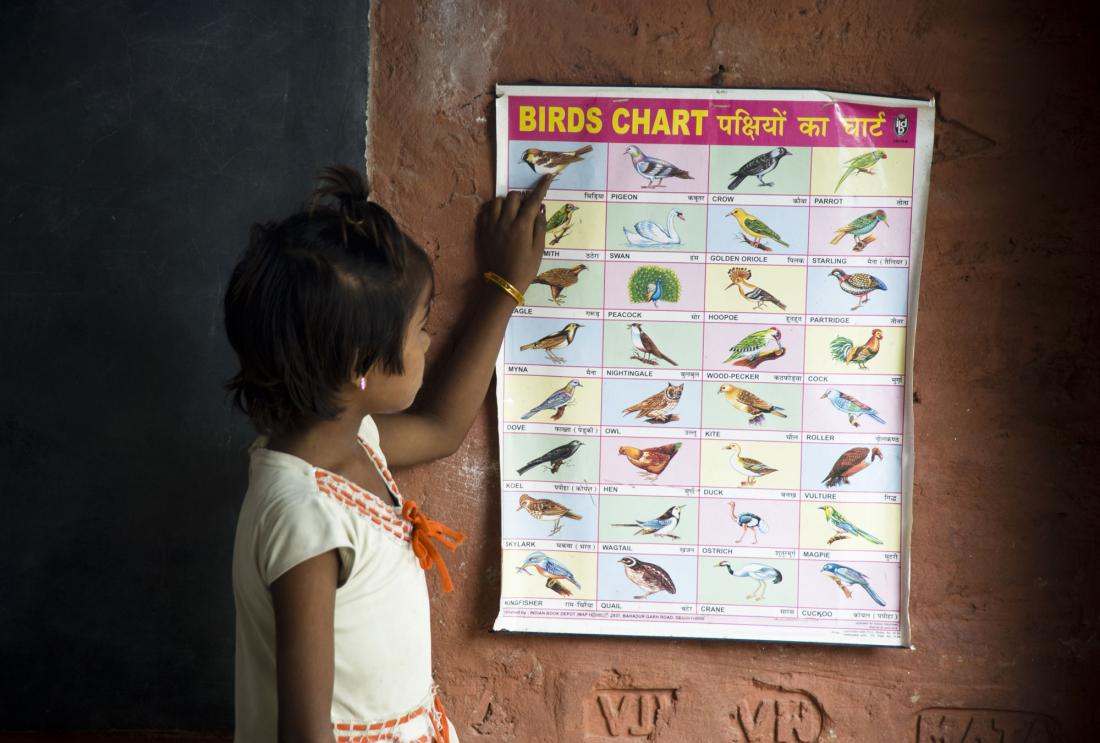School Libraries and Language Skills in Indian Primary Schools: A Randomized Evaluation of the Akshara Library Program
- Primary schools
- Student learning
- Recruitment and hiring
Policy issue
The quality of public schools in many developing countries is notoriously poor. While many countries are succeeding in increasing enrollment, the schools in which children enroll are not always meeting their educational needs. In order to address growing concerns about the actual quality of education, policymakers are increasingly focusing their attention on ensuring that children in school are in fact learning. However, evidence has demonstrated that adding more teachers or textbooks is not necessarily an effective way to help those children who may lack the basic skills to take advantage of such resources. In order to improve the quality of education for students in developing countries, it is important to first identify which strategies result in strong measurable gains among the targeted students. This study focuses on one aspect of that mission: understanding how the provision of libraries with age-appropriate reading-material and dedicated librarians helps improve educational attainment in a developing country setting.
Context of the evaluation
A recent survey on educational attainment in India found that 44% of the children aged 7 to 12 could not read a basic paragraph.1 Schools in India have extremely limited access to quality libraries and professional librarians. A survey conducted on public primary schools across the city of Bangalore revealed that even though 85% of schools had some sort of a library, only six percent of total schools had a librarian. In most schools, the library consisted of a small collection of books in a regular classroom or office and the quality and relevance of books was quite variable. Possibly as a result most of these resources were difficult for students to access, and hence ineffective in improving children’s reading abilities.

Details of the intervention
The Akshara Foundation is a Bangalore-based NGO with the “mission to ensure that every child is in school and learning well”. The foundation works with the state government, corporate sector and local citizens to design low-cost, scalable programs intended to improve children’s learning outcomes. These services are provided through a system that consists of hub schools that house the libraries, as well as satellite schools associated with a hub from which they borrow resources on a temporary basis. Researchers in Bangalore partnered with the Akshara Foundation to evaluate the impact of their library programs on primary school students’ academic achievement. Two-hundred hub schools and 186 spoke schools were randomly selected from all of the public primary schools in Bangalore and divided between a treatment and a comparison group. Students’ language skills were determined using a baseline evaluation, and a follow-up test was administered 16 months later to track their progress.
The intervention updated or replaced existing libraries with new facilities, and focused on equipping schools with books written at an age-appropriate level specifically designed to support the existing school curriculum. Hub schools in the treatment group received a physical library in a room uniquely designated by the school to be permanently staffed by an externally recruited, trained librarian. Spoke schools in the treatment group were served by a mobile librarian who transported reading materials for each visit. Besides primary services such as lending out books, the librarian also provides supplemental activities within the library such as storytelling, role-playing games and other educational activities. Each student had an opportunity to visit the library and work with the librarian on reading-focused educational activities according to a fixed time-table for each class. After 16 months, 67% of students utilized the libraries each month, which resulted in an overall participation rate for the average child of 2.4 visits a month, and borrowing 1.4 books a month.
Results and policy lessons
In estimating the impact of the Akshara library program, the primary outcome of interest is the follow-up test score on the exam implemented 16 months after implementation. Although the language section of this exam is of greatest interest, this analysis also includes the other sections (math and EVS) in case there were spillovers into these other subject. Unfortunately, the intervention seems to have had little effect on students’ language skills. Overall, there is little average difference in the language scores of students in the treatment and control groups.
The finding of zero effects holds true for all subsets of the population that was analyzed, including the type of school (hub or spoke), grade level, baseline test score, and demographic characteristics. There is similarly no effect on particular language competencies such as reading comprehension or vocabulary. There were also no impacts on student’s scores in other subjects such as math and science, and no impact on school attendance rates. One explanation for these findings could be that the students were only able to use the library on an occasional basis. The intensity of the program in the treatment schools is low, given that on average a child visits the library 2.4 times per month.
This treatment-intensity is one of the main differences between this study and other educational interventions that do show a significant effect; students in other studies made use of new teaching tools (i.e. educational software) several times a week. This suggests that the frequency with which students use new educational resources may be particularly important to the success of an educational intervention.
